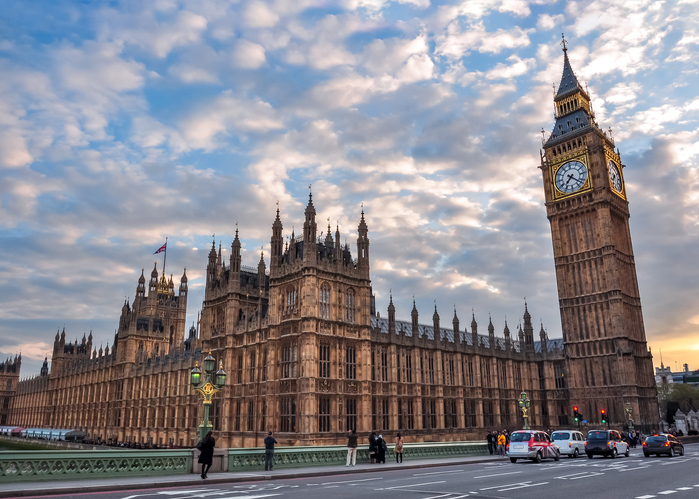Update on UK-EU Relationship
The first anniversary of the UK having left the European Union has passed. Full customs declarations and controls have been introduced on EU imports into the UK on 1 January 2022. Lord Frost unexpectedly resigned shortly before Christmas referring to his “concerns about the current direction of travel” of the Government. Foreign Secretary Liz Truss has taken over as UK lead negotiator. Lord Frost released a statement a day before his resignation, expressing his disappointment that no resolution regarding the Northern Ireland Protocol was reached before Christmas. The statement can be read here.
Northern Ireland
Discussions about the Northern Ireland Protocol have taken place between Foreign Secretary Liz Truss and European Commission Vice-President Maroš Šefčovič. The Government has been seeking changes to the Protocol’s operation and oversight. Both, the UK and the EU have put forward their own proposals for changes to reduce the impact of checks on goods entering Northern Ireland from Great Britain. Following the meeting a joint statement was released concluding UK and EU “share a desire for a positive relationship … underpinned by our shared belief in freedom and democracy”.
A further meeting is set to take place on 24 January. Despite no major breakthroughs a joint statement as well as the overall language suggests that there might be reason for cautious optimism.
The Government wants to introduce a self-certification process in which most goods sent to Northern Ireland from GB would not need to be checked. This is based on the assumption that most goods travelling across the Irish Sea would be staying in Northern Ireland rather than being sent across the Irish border into the EU. Furthermore, ministers want to limit the role of the European court of Justice in any disputes relating to the Protocol.
The Northern Ireland Affairs Committee held a session on investment in Northern Ireland on the 12 January 2022. Brexit and its impact on Northern Ireland’s attractiveness forms part of the inquiry. The session can be watched here. The full transcript is now available on the Committee’s website. The second session was held on the 19 January and can be watched here.
UK-Australia Free Trade Agreement (UK-Australia FTA)
The UK-Australia FTA was signed on 17 December. Secretary of State for International Trade, Anne-Marie Trevelyan recently updated the Commons outlining the areas it covers and how it benefits the UK, including the removal of tariffs on UK exports and an expected trade growth “by more than 50%”. Shadow Secretary of State Nick Thomas-Symonds criticised the Government for not sufficiently standing up for UK interests, particularly in the area of agriculture and farming. The transcript of the statement and debate can be read here.
The House of Lords International Agreements Committee questioned a panel of trade experts on the UK-Australia FTA. The session can be watched here. The Committee also re-opened its call for evidence on UK-Australia trade negotiations, The deadline is the 3 February 2022.
Farming & Fishing
A report has been published by the Public Accounts Committee looking into the Environmental Land Management Scheme, the post-Brexit replacement for the EU’s Common Agricultural Policy (CAP). The report finds that DEFRA’s plan for post-EU land and farming subsidies is based on “blind optimism”. According to the report the Scheme does not provide details on how the necessary productivity increase, or the environmental benefits will be brought about. It also does not provide any information on how these will offset the new Environmental Land Management Scheme’s dramatic effect on English farmers, who will see their income from direct payments reduce by more than half by 2024-25.
Replacing the CAP which provided financial support to farmers and rural development funding for more than 40 years before Brexit is “an opportunity to reset the approach to land management in England and deliver benefits for the environment, whilst also promoting a sustainable and productive farming sector”. However, the Committee says the Scheme appears “beset with many of the same issues that have undermined ambitious Government programmes in recent years” and the lack of information from DEFRA early enough to allow farmers to plan their businesses and take advantage of the new opportunities “is causing anxiety in the sector, exacerbated by a historic lack of trust caused by the Department’s past failures in managing farm payments”.
The House of Lords held oral questions into the supply chain issues in the food and farming sector identified by the National by the National Farmers Union and the British Retail Consortium and plans to prepare a long-term solution to these issues
The Minister of State Victoria Prentis has released a statement on the annual fisheries negotiations on the 6 January 2022. The UK and EU have reached an agreement on fishing opportunities for the 2022 fishing year. This is the second time the UK has entered into bilateral negotiations with the EU as an independent coastal State, following the signing of the Trade and Cooperation Agreement (TCA) between the UK and EU in 2020.The statement can be read here. While the TCA resolved what proportion of stocks would be allocated to the UK and EU respectively, the total catch levels for each stock still need to be negotiated on an annual basis, as well as any special conditions and flexibilities.
Other
International Trade Committee has announced an inquiry into the trade negotiations with India. The Committee will consider the Government’s approach and objectives, the progress of negotiations and the text of any agreement in principle and any deal reached. The Committee is inviting stakeholders to share their opinions on the Strategic approach and negotiating objectives. The Committee is particularly interested in finding out how this agreement will affect people and businesses across the UK, and any other impacts of the agreement. Submissions can be made until 5pm on 13 February.
Further negotiations on Gibraltar took place between the UK and the EU on 14 and 15 December, Europe Minister Chris Heaton-Harris has now made a written statement saying that “talks have been constructive and are making positive progress.” Key topics include movement of people between Gibraltar and the EU as well as movement of goods, law enforcement and criminal justice, transport, social security coordination, citizens’ rights, and data protection.
Key Dates for 2022:
- 30 June 2022: Deadline for determining whether the UK meets the conditions for exchanging personal data (DNA profiles, fingerprints and vehicle registration data) under the Prüm framework
- 1 July 2022: The new requirements for Export Health Certificates for EU imports into Great Britain, which were due to be introduced on 1 October 2021, will be introduced.
- 1 July 2022: Physical checks and phytosanitary certificates on most remaining SPS goods (such as meat and plants) at UK border Control Posts will be introduced (were due to be introduced on 1 January 2022).
- 1 September 2022: Checks for all dairy products will be introduced.
- 1 November 2022: Checks for all remaining regulated products of animal origin (including composite products and fish products) will be introduced.
- The grace periods for Great Britain to Northern Ireland trade in chilled meat products and food safety paperwork when moving agri-foods from GB-NI have both been extended indefinitely while talks between the UK and EU on the implementation of the NI Protocol continue.

